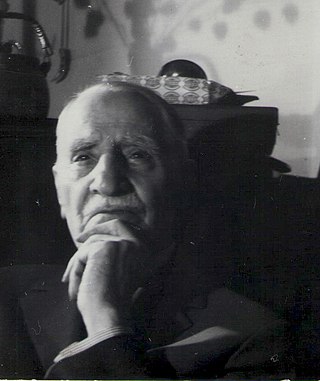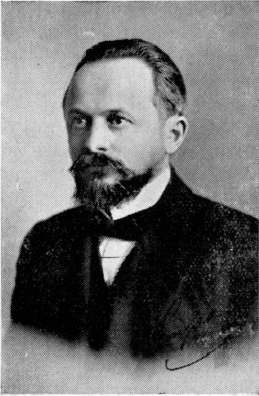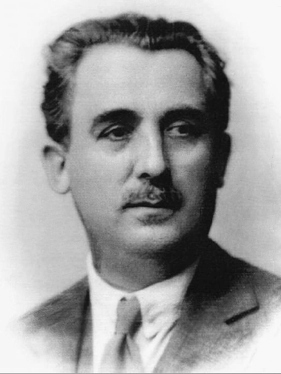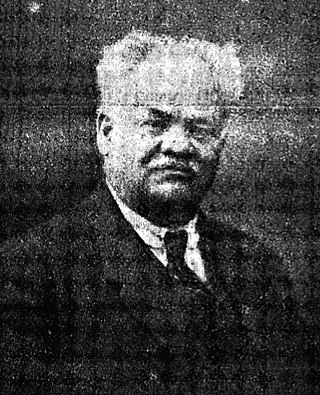| |||||
| Decades: | |||||
|---|---|---|---|---|---|
| See also: | |||||
Events from the year 1937 in Romania. The year saw the installation of the anti-semitic government of Octavian Goga.
| |||||
| Decades: | |||||
|---|---|---|---|---|---|
| See also: | |||||
Events from the year 1937 in Romania. The year saw the installation of the anti-semitic government of Octavian Goga.

Miron Cristea was a Romanian cleric and politician.

Alexandru C. Cuza, also known as A. C. Cuza, was a Romanian far-right politician and economist.
Ion (Ioan) Petrovici was a Romanian professor of philosophy at the University of Iași and titular member of the Romanian Academy. He served as Minister of National Education in the Goga cabinet and Minister of Culture and Religious Affairs in the Third Antonescu cabinet.

Iorgu Iordan was a Romanian linguist, philologist, diplomat, journalist, and left-wing agrarian, later communist, politician. The author of works on a large variety of topics, most of them dealing with issues of the Romanian language and Romance languages in general, he was elected a full member of the Romanian Academy in 1945. He was head of its Institute of Linguistics between 1949 and his retirement in 1962.

Ioan Lupaș was a Romanian historian, academic, politician, Orthodox theologian and priest. He was a member of the Romanian Academy.

The National Agrarian Party was a right-wing agrarian party active in Romania during the early 1930s. Established and led by poet Octavian Goga, it was originally a schism from the more moderate People's Party, espousing national conservatism, monarchism, agrarianism, antisemitism, and Germanophilia; Goga was also positively impressed by fascism, but there is disagreement in the scholarly community as to whether the PNA was itself fascist. Its antisemitic rhetoric was also contrasted by the PNA's acceptance of some Jewish members, including Tudor Vianu and Henric Streitman. The group was generally suspicious of Romania's other ethnic minorities, but in practice accepted members and external collaborators of many ethnic backgrounds, including the Romani Gheorghe A. Lăzăreanu-Lăzurică.

The People's Party, originally People's League, was an eclectic, essentially populist, mass movement in Romania. Created by World War I hero Alexandru Averescu, it identified itself with the new politics of "Greater Romania" period, and existed for almost as long as Greater Romania did. The PP broke with the antiquated two-party system, creating a wide coalition of lobbies, and advertised itself as the new challenge to the National Liberal Party (PNL). The group was held together by Averescu's charisma, and was popularly known as partidul averescan, "the Averescan party".

Octavian Codru Tăslăuanu was an Austro-Hungarian-born Romanian magazine publisher, non-fiction writer, and politician.

Florian Ștefănescu-Goangă was a Romanian psychologist. The son of a peasant family from Curtea de Argeș, he attended the University of Bucharest, followed by doctoral studies in psychology at Leipzig University under Wilhelm Wundt. Following World War I, he became a professor at the newly founded University of Cluj, emerging as a pioneer in experimental psychology in Romania over the ensuing decades. He led the university between 1932 and 1940, also serving in government for a time. An assassination attempt against him in 1938 precipitated the killing of Iron Guard leader Corneliu Zelea Codreanu. After 1945, he initially worked with the new communist government, but his insistence on an apolitical teaching environment ultimately saw him held at Sighet prison from 1950 to 1955, and he died three years after his release.

Gheorghe Bogdan-Duică was an Imperial Austrian-born Romanian literary critic. The son of a poor merchant family from Brașov, he attended several universities before launching a career as a critic, first in his native town and then in Czernowitz. Eventually settling in Bucharest, capital of the Romanian Old Kingdom, he managed to earn a university degree before teaching at a succession of high schools. Meanwhile, he continued publishing literary studies as well as intensifying an ardently nationalistic, Pan-Romanian activism. He urged the Romanian government to drop its neutrality policy and enter World War I; once this took place and his adopted home came under German occupation, he found himself arrested and deported to Bulgaria. After the war's conclusion and the union of Transylvania with Romania, he became a literature professor at the newly founded Cluj University. There, he served as rector in the late 1920s, but found himself increasingly out of touch with modern trends in literature.

Ioan Alexandru Brătescu-Voinești was a Romanian short story writer and politician. The scion of a minor aristocratic family from Târgoviște, he studied law and, as a young man, drew close to the Junimea circle and its patron Titu Maiorescu. He began publishing fiction as an adolescent, and put out his first book of stories in 1903; his work centered on the fading provincial milieu dominated by old class structures. Meanwhile, after a break with Maiorescu, he drew toward Viața Românească and Garabet Ibrăileanu. In 1907, Brătescu-Voinești entered the Romanian parliament, where he would serve for over three decades while his written output declined. In his later years, he became an outspoken anti-Semite and fascist, a stance that, following his country's defeat in World War II, gave way to anti-communism near the end of his life.

Ioan Bianu was an Imperial Austrian-born Romanian philologist and bibliographer. The son of a peasant family from Transylvania, he completed high school in Blaj, where he became a disciple of Timotei Cipariu and Ioan Micu Moldovan. As a youth, he espoused Romanian nationalism, and came into conflict with the Austro-Hungarian authorities, before finally emigrating to the Romanian Old Kingdom in 1876. There, he attended the University of Bucharest, later joining the faculty, where he taught Romanian literary history. He was affiliated with the Romanian Academy Library for over half a century, transforming the institution from the meager state in which he found it, and overseeing a five-fold increase of its collection. He helped author two important multi-volume works detailing early books and manuscripts from his country, and was a founder of library and information science in his adoptive country. Near the end of his life, struggling with deafness, Bianu withdrew from the Library in favor of his friend Radu R. Rosetti, but went on to serve as president of the Romanian Academy.

Victor Spinei is Emeritus Professor of history and archaeology at the Alexandru Ioan Cuza University, member and vice president of the Romanian Academy. He is a specialist on the history of Romania and the Romanian people in the Early and High Middle Ages, the history of migratory peoples in Eastern and Southeastern Europe during this period, and the production and circulation of cult objects in Eastern and Southeastern Europe during the Middle Ages.

Cezar Papacostea was an ethnic Aromanian classicist and translator living in Romania.

Grigore C. Crăiniceanu was a Romanian military officer.
Nicolae Moret Blaremberg was a Romanian politician.
Events from the year 1939 in Romania. The year saw the assassination of Armand Călinescu.
Events from the year 1932 in Romania. The year saw the birth of two future Woman Grandmasters, Maria Albuleț and Margareta Teodorescu.
Events from the year 1933 in Romania. The year saw the Grivița strikes, the formation of the Little Entente, and the assassination of the Prime Minister Ion G. Duca.
Events from the year 1920 in Romania. The year was marked by the signing of the Treaty of Trianon and Treaty of Paris, and a general strike.